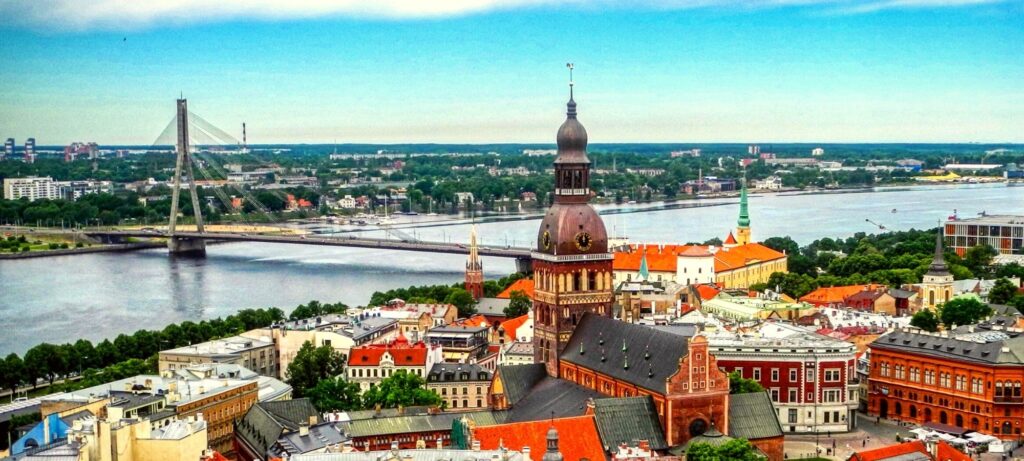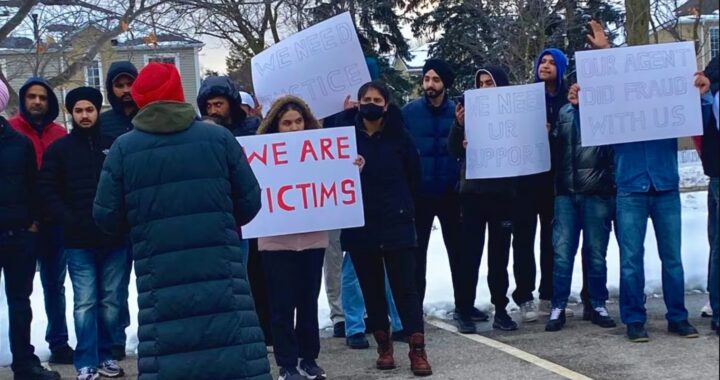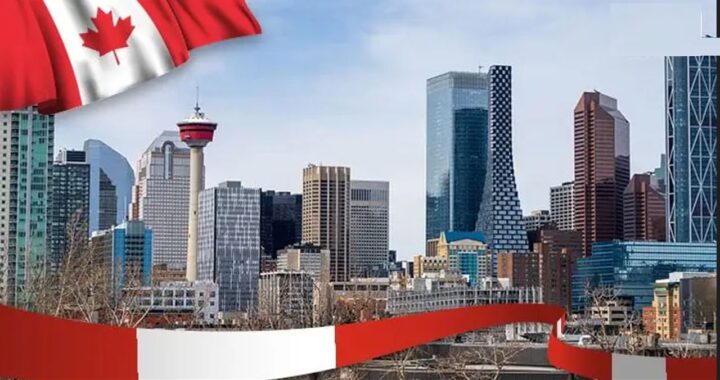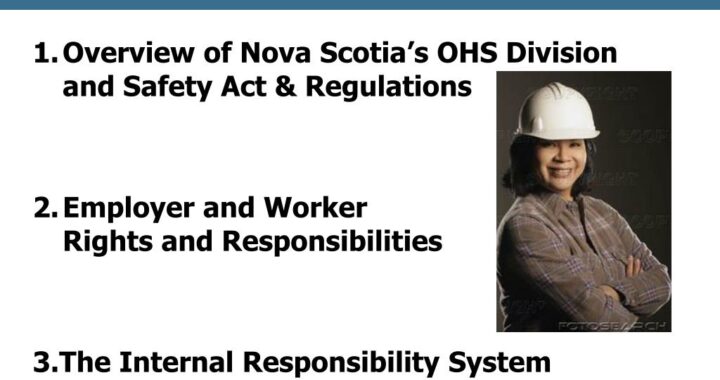Immigration Process to Latvia and Job Prospects

Immigrating to Latvia
Latvia is a beautiful country located in Northern Europe, on the eastern coast of the Baltic Sea. Latvia boasts of a scenic landscape with sandy beaches, dense forests, and rolling hills. Latvians are known for their warm hospitality and friendly nature. The official language is Latvian, but Russian is also widely spoken.
Latvia has a rich culture and history, with influences from its neighbouring countries. The capital, Riga, is a UNESCO World Heritage Site known for its medieval architecture and Art Nouveau buildings.
It is a member of the European Union, Eurozone, NATO, and other international organizations.
Latvia is a developed country with a high-income, advanced economy. The currency is the Euro.
Here are some things to consider if you’re thinking about visiting Latvia:
Latvia offers a good standard of living, but it’s important to under various industries in Latvia and assess job prospects in various sectors before moving there.
Main Industry: Latvia’s economy is diverse, but some key sectors include:
Information Technology (IT): The IT sector is growing rapidly, with Latvia becoming a hub for startups and outsourcing companies.
Wood Processing: Wood processing and forestry are traditional industries in Latvia, with a focus on sustainable practices.
Transportation: Latvia has a well-developed transportation sector, including logistics and shipping due to its location on the Baltic Sea.
Tourism: Tourism is a significant contributor to the economy, particularly during the summer months.
What are Job Prospects in Latvia?
Job prospects depend on your skills and experience. IT, engineering, and healthcare professions are generally in demand. Learning Latvian can significantly improve your chances.
Salary Level in Latvia:
Compared to Western Europe, salaries in Latvia are lower. The average monthly salary is around €1000 (around $1100 USD, subject to exchange rates).
However, the cost of living in Latvia is generally considered lower than many Western European countries, particularly when it comes to housing. Overall, compared to the United States, Latvia is estimated to be around 29.5% cheaper, with rent being significantly lower (around 73% lower).
Average cost of living in Latvia with Basic necessities and comforts:
For a single person, excluding rent, monthly costs could be around €893.2 (around $823.7).
For a family of four, excluding rent, monthly costs could be around €2,954.7 (around $2,724.8).
Keep in mind these are averages, and the cost of living can vary depending on factors like:
Location: Riga, the capital, will be more expensive than smaller towns.
Lifestyle: Eating out and entertainment will obviously cost more than home-cooked meals and local activities.
Education System in Latvia and its acceptability worldwide:
Latvia’s education system is well-regarded, with free public education available for children up to age 18. Universities offer programs in various fields.
Latvia boasts a highly accessible education system with compulsory education from ages 7 to 16. Pre-school education is also available and compulsory for children turning 5.
Latvian students perform well in international assessments like PISA (Programme for International Student Assessment). In 2022, they scored higher than the OECD average in mathematics and natural sciences, and almost at the OECD average in reading.
Equity in Latvian Education System: The system is considered equitable, meaning socio-economic background has less impact on a student’s performance compared to some other countries.
Latvia offers a strong vocational training system alongside academic programs, preparing students for skilled professions.
Weaknesses of Latvian Education System:
Funding: The system is underfunded compared to other European countries. This leads to resource limitations and potentially lower teacher salaries.
Language: Latvian is the primary language of instruction, which can be a barrier for non-Latvian speakers. English proficiency is improving, but fluency might be less common compared to other European countries.
Rural-Urban Disparity: Access to quality education may be more limited in rural areas compared to major cities.
Acceptability of Latvian Degree Worldwide:
Latvian degrees are recognized internationally, thanks to its participation in the Bologna Process, which promotes standardization across European higher education.
How Latvian degree is viewed globally:
For European study and careers: A Latvian education is well-accepted and can provide a strong foundation for further studies or work opportunities in Europe.
For global competitiveness: The focus on core academics and good performance in international assessments suggests a solid education. However, depending on your field and career goals, a degree from a more prominent university in another country might be more recognizable globally.
Medical and healthcare Facilities in Latvia:
Latvia has a universal healthcare system, but private healthcare options are also available. While quality varies, basic medical care is accessible. It is primarily funded by the state budget.
Some recent discussions about introducing Compulsory Health Insurance, but postponed for now.
Despite increases, health expenditure per capita remains among the lowest in the EU.
Challenges in Latvian Healthcare system:
Underfunding is a major concern, that often leads to requirements of out-of-pocket payments by patients, which is high compared to the EU average.
Life expectancy in Latvia is on the rise.
Requirements and process to apply Visa to Latvia:
You would need a visa and immigration permits to move and work in Latvia if you are a citizen of a country that is not part of the European Union (EU), European Economic Area (EEA), or Switzerland.
EU/EEA/Switzerland Citizens: If you are a citizen of one of these countries, you don’t need a visa to enter Latvia. You just need to register your stay with the Office of Citizenship and Migration Affairs (OCMA) if you plan to stay longer than 90 days.
Non-EU/EEA/Switzerland Citizens: You will need to go through a more complex process that involves obtaining three things:
Work Visa (D-type): This visa allows you to stay in Latvia for long-term work purposes (usually up to a year). It’s typically obtained with the help of a Latvian employer who will sponsor your application.
Work Permit: Your Latvian employer will need to apply for a work permit on your behalf from the Latvian authorities.
Temporary Residence Permit: This permit allows you to live in Latvia while you work. You’ll apply for this after receiving your work visa.
Immigration Process to Latvia and Eligibility:
Immigrating to Latvia involves several steps, including obtaining a visa and residence permit. Eligibility requirements vary depending on the visa type. Common options include work visas, investment visas, and visas for family members of Latvian citizens.
The process for applying for immigration to Latvia depends on your reason for wanting to move there.
Here’s a breakdown of the two most common scenarios for Immigration:
-
Moving to Latvia for Work:
This is the most common scenario and involves several steps:
Find an Employer: You’ll need a job offer from a Latvian employer who is willing to sponsor your work visa application.
Work Permit: Your employer will apply for a work permit on your behalf from the Office of Citizenship and Migration Affairs (OCMA) in Latvia.
Work Visa (D-type): Once the work permit is approved, you can apply for a work visa (D-type) at the Latvian embassy or consulate in your home country. This visa typically allows you to stay in Latvia for up to a year.
Temporary Residence Permit: After entering Latvia with your work visa, you’ll need to apply for a temporary residence permit from the OCMA. This permit allows you to live and work in Latvia for the duration of your employment contract (usually up to five years with a possibility of extension).
Documents Required fpr Visa to Latvia(may vary):
- Completed application form
- Passport and copies of all pages
- Work contract with your Latvian employer
- Proof of work qualifications
- Proof of health insurance
- Criminal background check from your home country
- Proof of sufficient financial resources
- Moving to Latvia for Other Reasons:
2. If you’re moving to Latvia for reasons other than work, such as study or family reunification, the process will differ. Here are some resources to get you started:
Study: For students, the first step is to get accepted into a Latvian university. The university can then help you with the visa application process.
Family Reunification: If you have a close family member who is a Latvian citizen or permanent resident, you may be eligible for a family reunification visa.
Investment: Latvia offers a residence permit program for individuals who invest a significant amount of money in the country.
Processing Time: Processing times for immigration visas can vary from a few months to a year or more, depending on the complexity of your case.
Comparing Immigrating to Latvia vs Other Countries as Germany or London
Immigration Process
Latvia: Generally easier for those with job offers and EU blue cards. More complex process for others.
Germany: Relatively straightforward for skilled workers with qualifications in-demand. Points-based system for skilled immigration.
UK: More complex since Brexit, especially for non-EU citizens. Requires sponsorship for work visas in most cases.
Language:
Latvia: Latvian is the official language. English is spoken in major cities, but fluency is less common than in Germany or UK.
Germany: German is the official language. English is widely spoken in business and tourist areas, but fluency is helpful for daily life.
UK: English is the official language. Regional variations exist (e.g., Welsh in Wales).
Cost of Living:
Latvia: Generally lower than Germany and UK, particularly regarding housing.
Germany: Moderately high cost of living, especially in major cities like Munich.
UK: Relatively high cost of living, particularly in London and Southeast England.
Job Market:
Latvia: Growing economy, but job market can be competitive, especially outside Riga. Focus on IT, tourism, and niche sectors.
Germany: Strong economy with a high demand for skilled workers in various sectors (engineering, healthcare, etc.).
UK: Diverse job market, but competition can be high in certain sectors. Brexit may have impacted job opportunities for non-UK citizens.
Culture:
Latvia: Rich cultural heritage with a mix of Baltic and Slavic influences. Smaller, close-knit communities outside major cities.
Germany: Efficient and structured society with a strong emphasis on punctuality and rules. Diverse cultural life, especially in larger cities.
UK: Multicultural society with a long history and tradition. Can be more fast-paced and informal compared to Germany.
Latvia has cold winters and mild summers. Germany and UK have milder climates overall.
Latvia has a good transportation system, including buses, trains, and airplanes. Riga International Airport is the main airport in the country.
Latvia is a safe country to visit. However, it’s always a good idea to be aware of your surroundings and take precautions against petty theft. Overall, Latvia is a great place to visit for those interested in experiencing a beautiful country with a rich culture and history.
Racism in Latvia:
Racism exists to some extent in Latvia, as in many countries. However, the government and society are working to promote tolerance and inclusion. Immigrants with good language skills and a willingness to integrate are generally welcomed.
Reporting Racism:
Latvian Centre for Human Rights (LCHR) offers a reporting form for discrimination, including racial discrimination. It also provides free legal aid in some cases. Equality Ombudsman, a government body investigates complaints of discrimination based on various factors, including race.
You can report racist incidents directly to the police, especially if they involve violence or threats. Several NGOs in Latvia work on anti-racism issues. They may offer support and guidance on how to file a complaint.
It will be good idea to learn some basic Latvian phrases before moving. Research the specific costs of living in your chosen area. Network with people already living in Latvia for insights.

 Recent Changes to Canada’s Work Permit Rules and its impact on Immigrants from India
Recent Changes to Canada’s Work Permit Rules and its impact on Immigrants from India  Applications for UK Immigration witness major decline as the Immigration Laws undergo significant changes
Applications for UK Immigration witness major decline as the Immigration Laws undergo significant changes  Recent Changes to Canada’s Temporary Foreign Worker Program (TFWP) Effective May 1, 2024
Recent Changes to Canada’s Temporary Foreign Worker Program (TFWP) Effective May 1, 2024  Notario Fraud- a rampant fraudulent practice trapping immigrants to US and Canada
Notario Fraud- a rampant fraudulent practice trapping immigrants to US and Canada  Canada Immigrant Investor Program 2024- loaded with many good features- Check out here
Canada Immigrant Investor Program 2024- loaded with many good features- Check out here  Recent changes in workers compensation act in Nova Scotia and how it would impact Immigrants
Recent changes in workers compensation act in Nova Scotia and how it would impact Immigrants  What actions by Trump Government are in store for illegal immigrants in US? What are Challenges to deport illegal immigrants from US?
What actions by Trump Government are in store for illegal immigrants in US? What are Challenges to deport illegal immigrants from US?  What are changes in Canada Start up Visa Program and Self-Employed Persons Program. How would it affect the potential immigrants to Canada?
What are changes in Canada Start up Visa Program and Self-Employed Persons Program. How would it affect the potential immigrants to Canada?